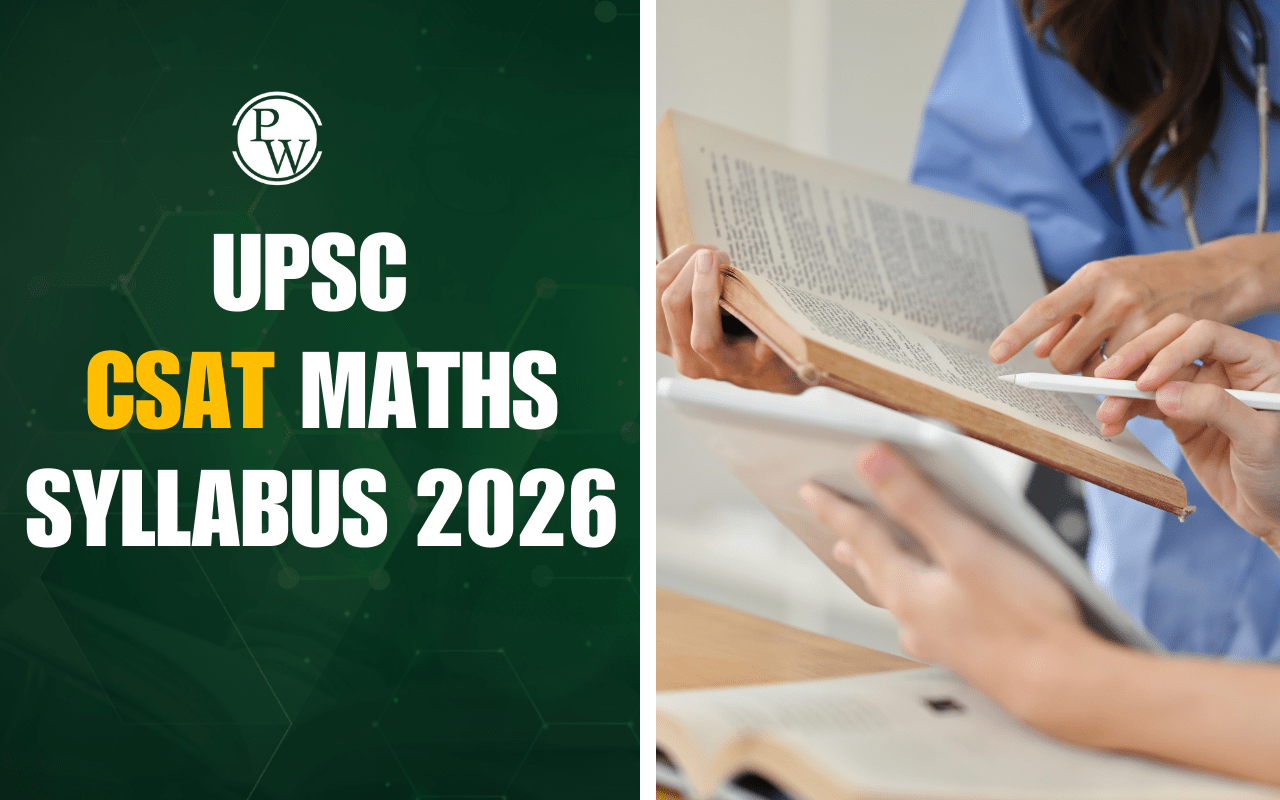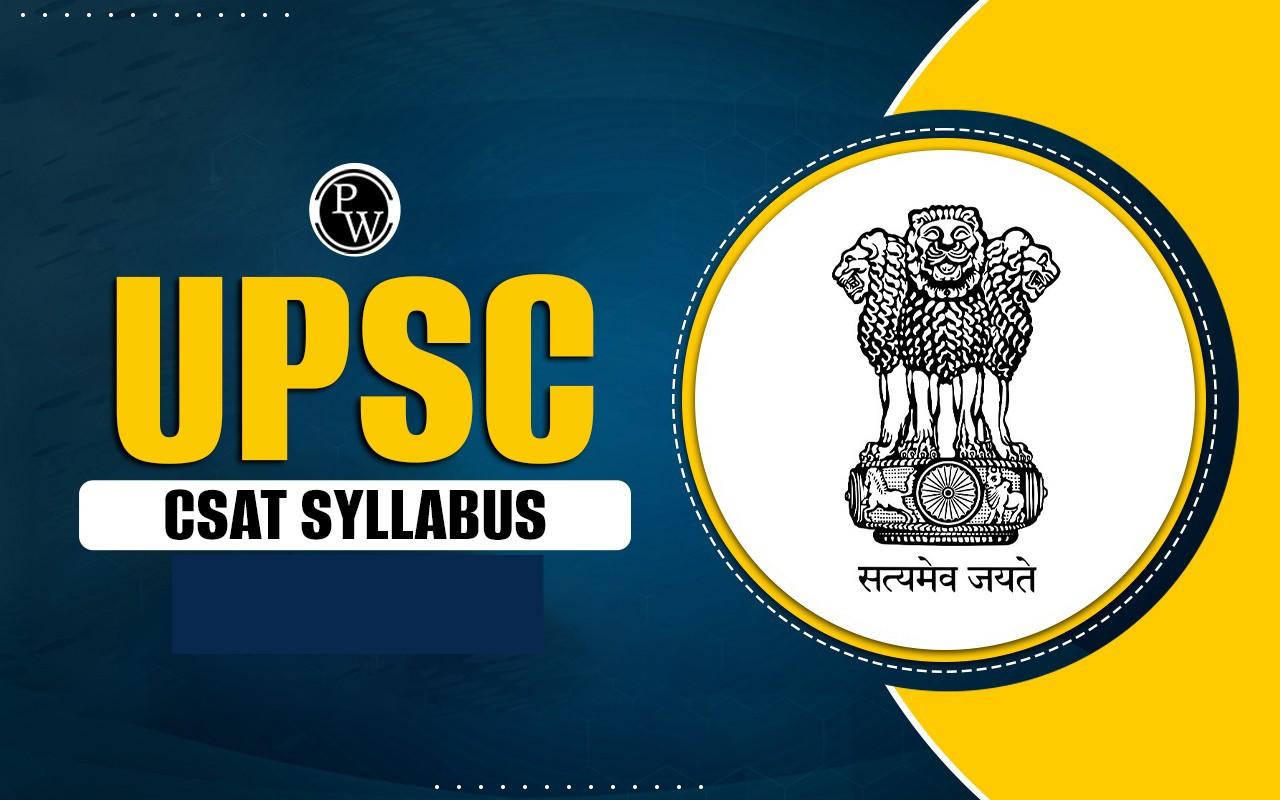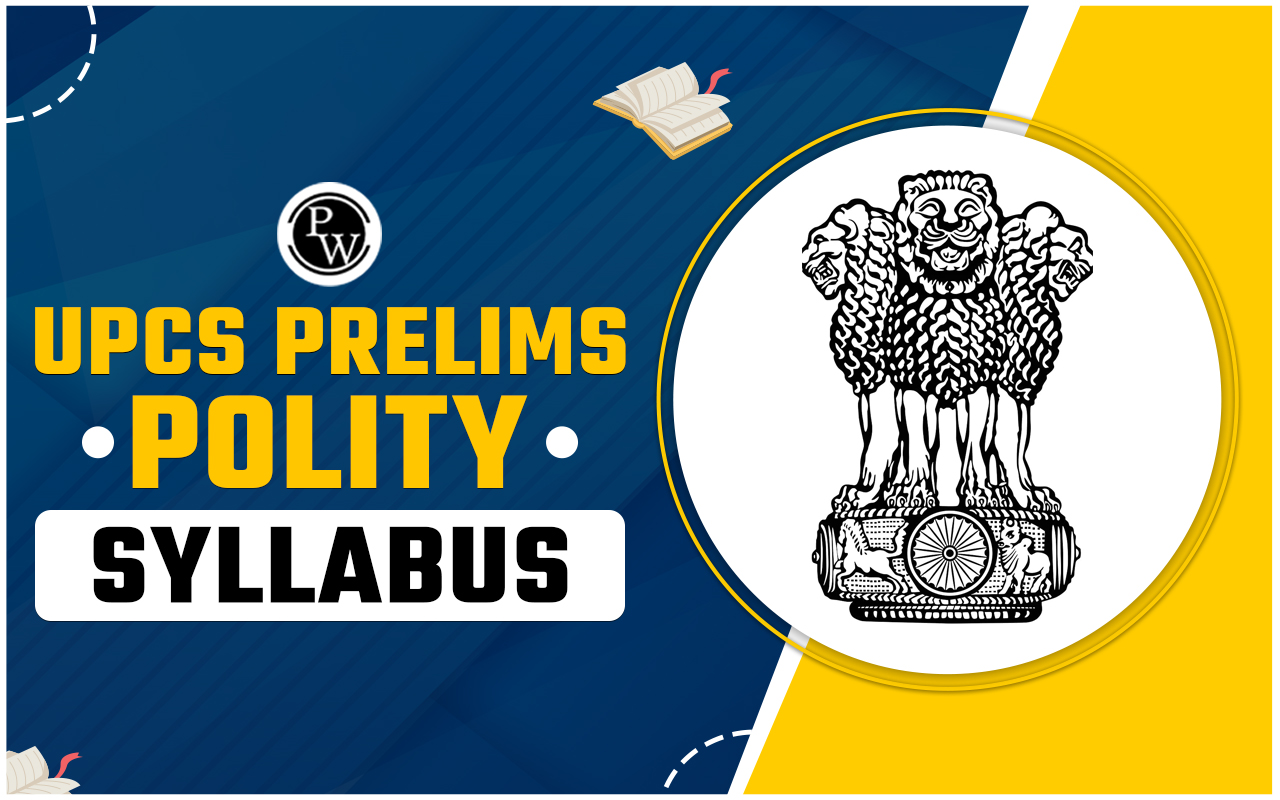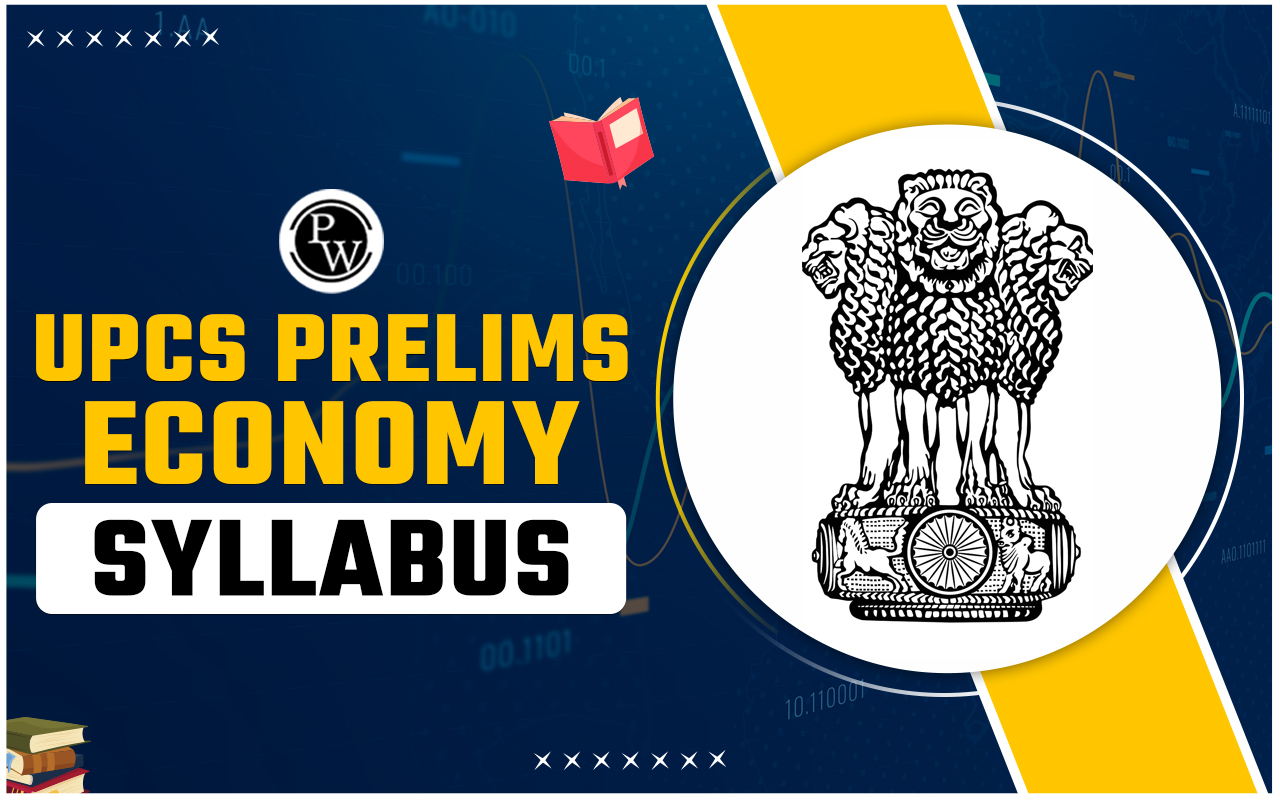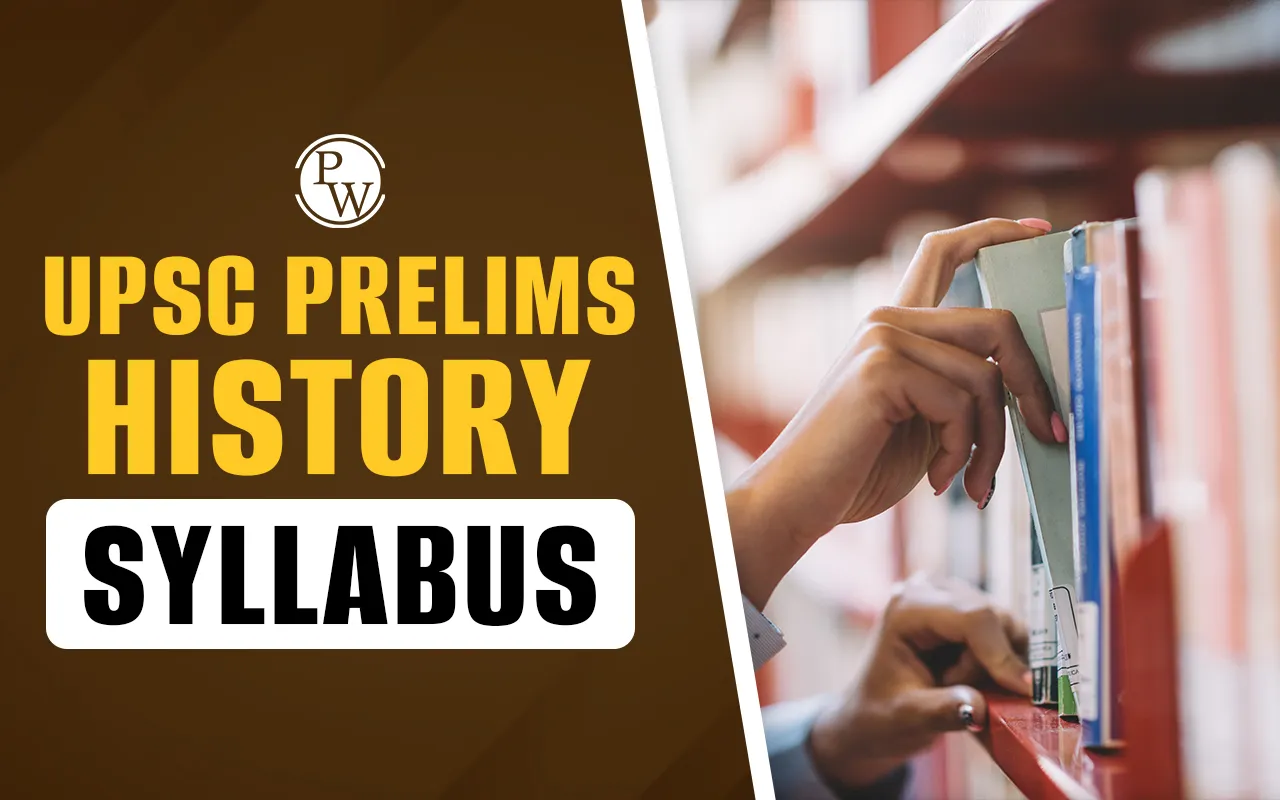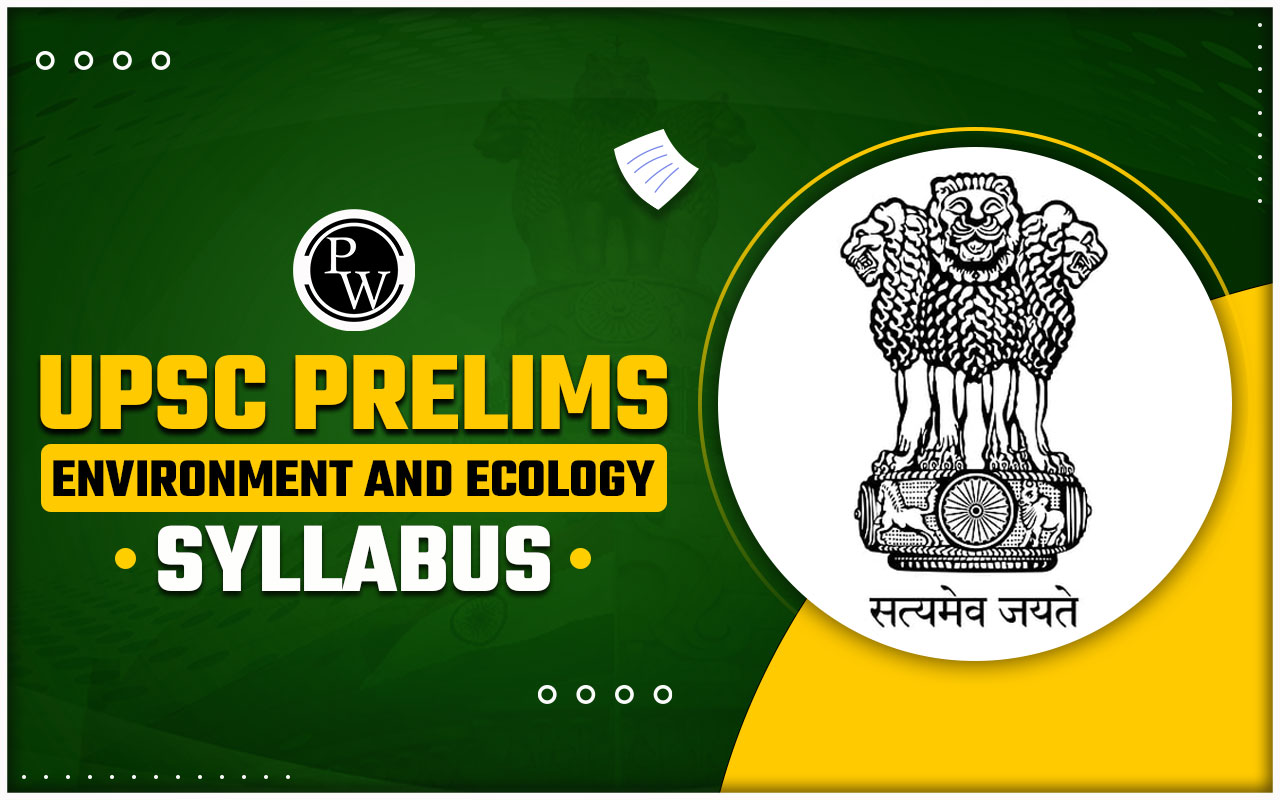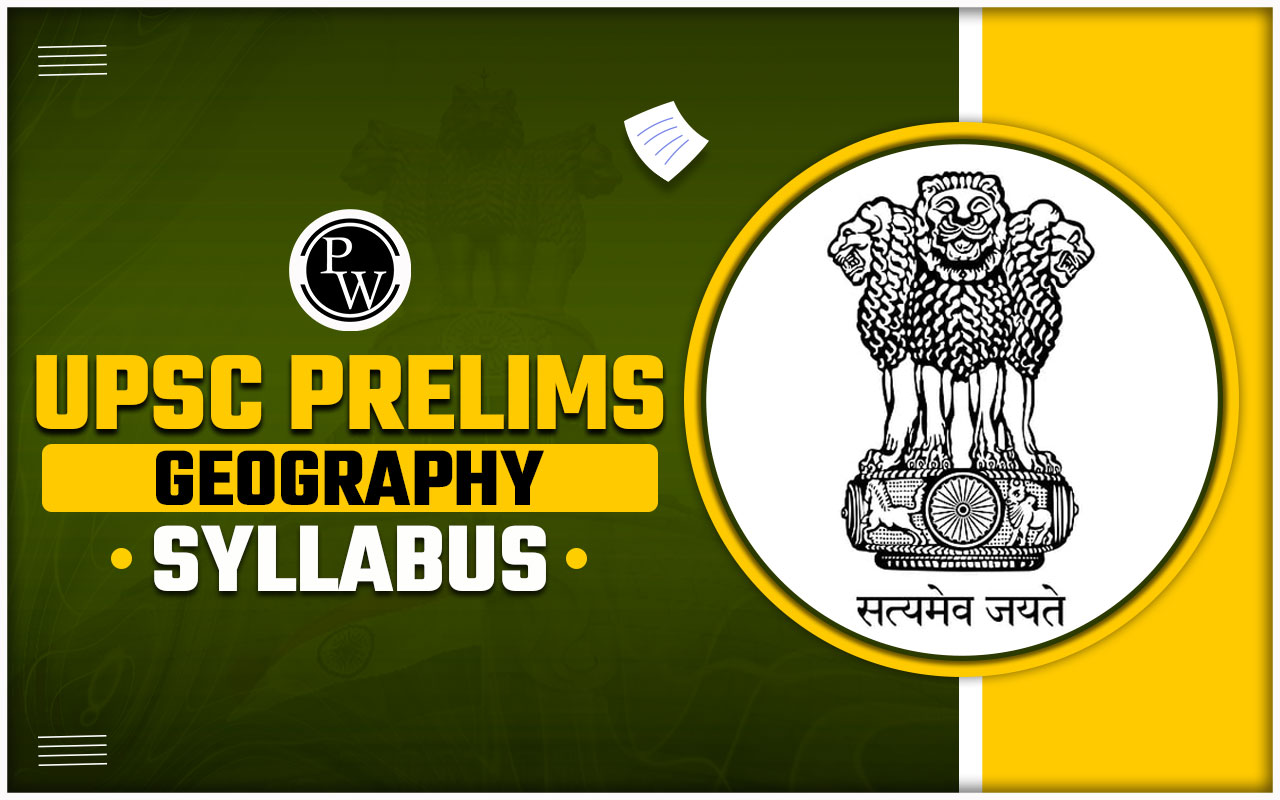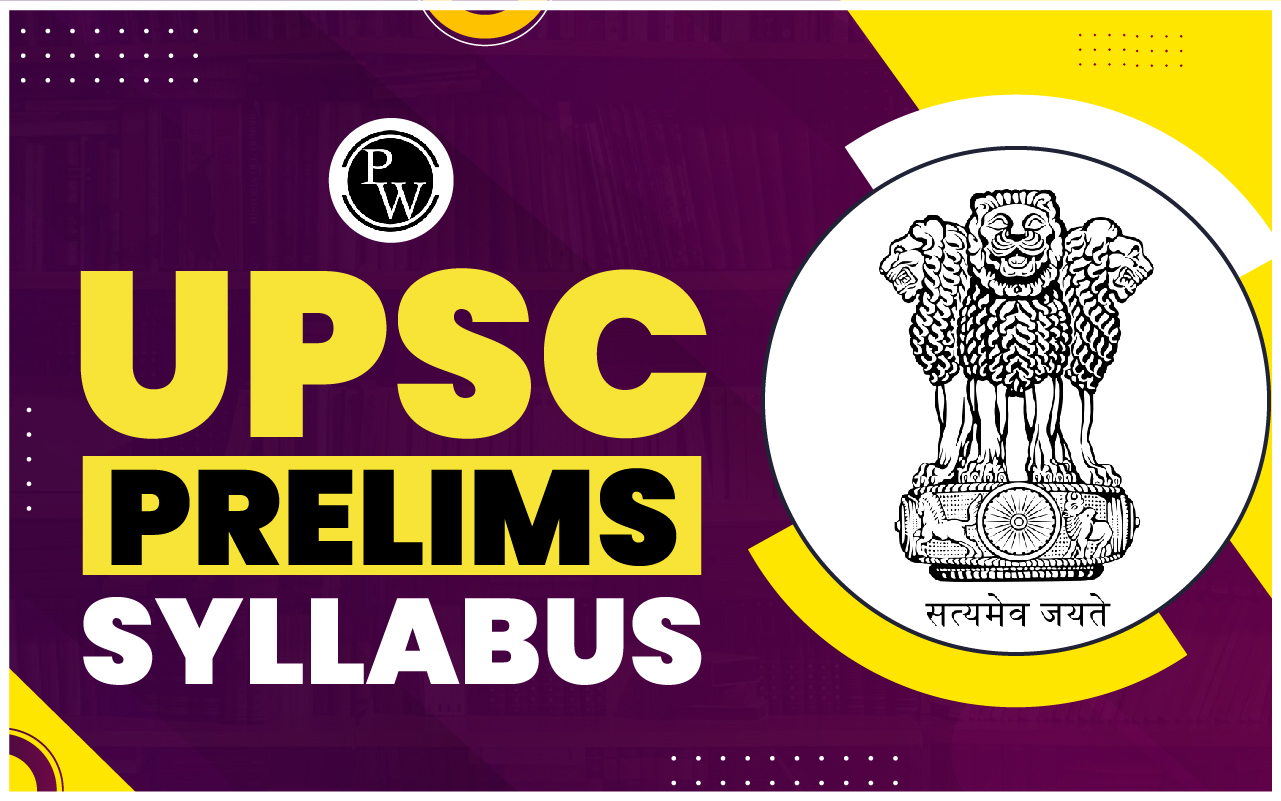
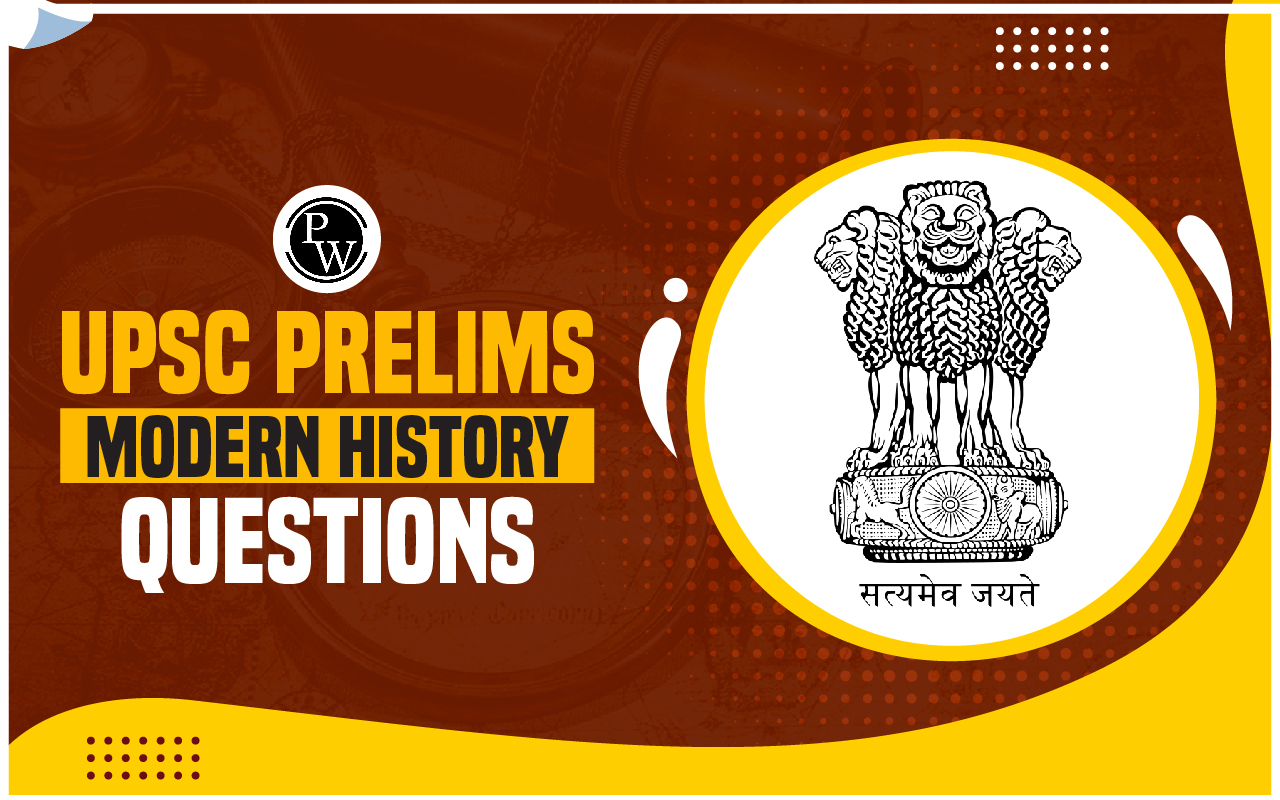
UPSC Prelims Modern History Questions: The history section of the UPSC Civil Services Prelims question paper is divided into three sections: ancient, medieval, and modern. Of these, UPSC Prelims Modern History questions focus on significant events, movements, and personalities from the late 18th century to India's independence in 1947.
The format of Modern History questions in UPSC Prelims has a mix of analytical and factual types, tending more towards a factual nature. Even though fewer questions have been asked in recent years, candidates must not ignore this subject. By analyzing previous years' UPSC Prelims Modern History questions, candidates can find out the important topics to focus on.Previous Year's UPSC Prelims Modern History Questions with Answers
The previous year's UPSC Prelims modern history questions covering important events and figures in Indian history. These questions often focused on key topics like the freedom struggle, major movements, and influential leaders. Reviewing these questions and their answers helps future candidates understand the exam pattern and important themes in modern history, making it easier to prepare effectively. Here is the direct link to access the UPSC Prelims Modern History questions with answers and detailed explanations:| Solved UPSC Prelims Modern History PYQs | |
| Title | Link |
| UPSC Prelims Modern History questions with answers | UPSC Prelims Modern History PYQs |
| Other Subject Questions in UPSC Prelims | UPSC Prelims PYQs |
UPSC Prelims Modern History Questions 2024
UPSC Prelims 2024 had just two Modern History questions in the GS paper. However, this does not mean that candidates will ignore this subject. Here are UPSC Prelims Modern History Questions 2024 with answers.- It provided for the establishment of an All India Federation based on the union of the British Indian Provinces, and Princely States.
- Defence and Foreign Affairs were kept under the control of the federal legislature.
- 1 only
- 2 only
- Both 1 and 2
- Neither 1 nor 2
- Under the Ryotwari Settlement of revenue collection, the peasants were exempted from revenue payment in case of bad harvests or natural calamities.
- Under the Permanent Settlement in Bengal, if the Zamindar failed to pay his revenues to the state, on or before the fixed date, he would be removed from his Zamindari.
(b) 2 only
(c) Both 1 and 2UPSC Prelims Modern History Questions 2023
The UPSC Prelims 2023 and 2022 saw a dramatic decrease in the number of questions from the Modern History section. The overall nature of the previous year's UPSC Prelims Modern History Questions was factual with one analytical question. Here are Modern History questions that were asked in the UPSC Prelims 2023 exam:Question 1: By which one of the following Acts was the Governor-General of Bengal designated as the Governor-General of India?
(a) The Regulating Act
(b) The Pitt's India Act
(c) The Charter Act of 1793
(d) The Charter Act of 1833
Question 2: With reference to Indian History, Alexander Rea, A. H. Longhurst, Robert Sewell, James Burgess, and Walter Elliot were associated with:
(a) Archaeological excavations
(b) Establishment of English Press in Colonial India
(c) Establishment of Churches in Princely States
(d) Construction of railways in Colonial India
Question 3: Consider the following statements:
- Statement I: 7th August is declared as National Handloom Day.
- Statement II: It was in 1905 that the Swadeshi Movement was launched on the same day.
Which one of the following is correct in respect of the above statements?
(a) Both Statement I and Statement II are correct, and Statement II is the correct explanation for Statement I.
(b) Both Statement I and Statement II are correct, and Statement II is not the correct explanation for Statement I.
(c) Statement I is correct, but Statement II is incorrect.
(d) Statement I is incorrect, but Statement II is correct.
Modern History Questions in UPSC Prelims - Year wise Trend
In recent years the Modern History questions in UPSC Prelims have varied from 6 to 12 in number. The UPSC Prelims 2018 exam saw the highest number of questions from the Modern History section. Next year just 6 questions from this section were asked. However, overall themes remained the same in the past 10 years with more in-depth questions. This is why experts suggest preparing this subject well according to UPSC PYQs themes. Further, the syllabus is also easy to cover from NCERTs and one standard book due to being static in nature. Here is year-wise trend of Modern History questions in UPSC PrelimsTopic wise Modern History Questions in UPSC Prelims
The best way to prepare Modern History for UPSC Prelims is to quickly go through PYQs, read NCERTs and Spectrum/Bipin Chandra, solve questions from related chapters, and highlight important topics for revision. Here are topic-wise Modern History questions in UPSC Prelims from the previous year:Freedom Movements
Question 1: With reference to 8th August 1942 in Indian history, which one of the following statements is correct? (2021)
(a) The Quit India Resolution was adopted by the AICC.
(b) The Viceroy’s Executive Council was expanded to include more Indians.
(c) The Congress ministries resigned in seven provinces.
(d) Cripps proposed an Indian Union with full Dominion Status once the Second World War was over.
Question 2: With reference to the history of India, “Ulgulan” or the Great Tumult is the description of which of the following events? (2020)
(a) The Revolt of 1857
(b) The Mappila Rebellion of 1921
(c) The Indigo Revolt of 1859 – 60
(d) Birsa Munda’s Revolt of 1899-1900
Question 3: With reference to the Indian freedom struggle, consider the following events:
- Mutiny in Royal Indian Navy
- Quit India Movement launched
- Second Round Table Conference
What is the correct chronological sequence of the above events? (2017)
(a) 1-2-3
(b) 2-1-3
(c) 3-2-1
(d) 3-1-2
Question 4: Quit India Movement was launched in response to: (2013)
(a) Cabinet Mission Plan
(b) Cripps Proposals
(c) Simon Commission Report
(d) Wavell Plan
Famous Personalities
Consider the following freedom fighters:- Barindra Kumar Ghosh
- Jogesh Chandra Chatterjee
- Rash Behari Bose
Question 1: Who of the above was/were actively associated with the Ghadar Party? (2022)
(a) 1 and 2
(b) 2 only
(c) 1 and 3
(d) 3 only
Question 2: Who among the following is associated with ‘Song from Prison’, a translation of ancient Indian religious lyrics in English? (2021)
(a) Bal Gangadhar Tilak
(b) Jawaharlal Nehru
(c) Mohandas Karamchand Gandhi
(d) Sarojini Naidu
Question 3: The Vital-Vidhvansak, the first monthly journal to have the untouchable people as its target audience, was published by: (2020)
(a) Gopal Baba Walangkar
(b) Jyotiba Phule
(c) Mohandas Karamchand Gandhi
(d) Bhimrao Ramji Ambedkar
| Person | Position held |
| Sir Tej Bahadur Sapru | President, All India Liberal Federation |
| K. C. Neogy | Member, The Constituent Assembly |
| P. C. Joshi | General Secretary, Communist Party of India |
Colonization (Early settlements)
Question 1: With reference to Indian history, consider the following statements:
- The Dutch established their factories/warehouses on the east coast on lands granted to them by Gajapati rulers.
- Alfonso de Albuquerque captured Goa from the Bijapur Sultanate.
- The English East India Company established a factory at Madras on a plot of land leased from a representative of the Vijayanagara empire.
Which of the statements given above are correct? (2021)
(a) 1 and 2 only
(b) 2 and 3 only
(c) 1 and 3 only
(d) 1, 2 and 3
Question 2: In the first quarter of the seventeenth century, in which of the following was/were the factory/factories of the English East India Company located?
- Broach
- Chicacole
- Trichinopoly
Select the correct answer using the code given below.
(a) 1 only
(b) 1 and 2
(c) 3 only
(d) 2 and 3
Question 3: Which one of the following groups of plants was domesticated in the ‘New World’ and introduced into the ‘Old World’? (2019)
(a) Tobacco, cocoa and rubber
(b) Tobacco, cotton and rubber
(c) Cotton, coffee and sugarcane
(d) Rubber, coffee and wheat
Constitutional Developments
Question 1: With reference to the proposals of the Cripps Mission, consider the following statements:
- The Constituent Assembly would have members nominated by the Provincial Assemblies as well as the Princely States.
- Any Province, which is not prepared to accept the new Constitution, would have the right to sign a separate agreement with Britain regarding its future status.
Which of the statements given above is/are correct? (2022)
(a) 1 only
(b) 2 only
(c) Both 1 and 2
(d) Neither 1 nor 2
Question 2: Consider the following statements:
- The Montagu-Chelmsford Reforms of 1919 recommended granting voting rights to all the women above the age of 21.
- The Government of India Act of 1935 gave women reserved seats in the legislature.
Which of the statements given above is/are correct? (2021)
(a) 1 only
(b) 2 only
(c) Both 1 and 2
(d) Neither 1 nor 2
Impact of British Colonization
Question 1: Which of the following statements correctly explains the impact of the Industrial Revolution on India during the first half of the nineteenth century? (2020)
(a) Indian handicrafts were ruined.
(b) Machines were introduced in the Indian textile industry in large numbers.
(c) Railway lines were laid in many parts of the country.
(d) Heavy duties were imposed on the imports of British manufactures.
Question 2: Economically, one of the results of British rule in India in the 19th century was the: (2018)
(a) Increase in the export of Indian handicrafts
(b) Growth in the number of Indian-owned factories
(c) Commercialization of Indian agriculture
(d) Rapid increase in the urban population
Mahatma Gandhi
Question 1: The Gandhi-Irwin Pact included which of the following?
- Invitation to Congress to participate in the Round Table Conference
- Withdrawal of Ordinances promulgated in connection with the Civil Disobedience Movement
- Acceptance of Gandhi’s suggestion for enquiry into police excesses
- Release of only those prisoners who were not charged with violence
Select the correct answer using the code given below:
(a) 1 only
(b) 1, 2 and 4 only
(c) 3 only
(d) 2, 3 and 4 only
Question 2: Mahatma Gandhi undertook a fast unto death in 1932, mainly because: (2012)
(a) Round Table Conference failed to satisfy Indian political aspirations.
(b) Congress and Muslim League had differences of opinion.
(c) Ramsay Macdonald announced the Communal Award.
(d) None of the statements (a), (b), and (c) given above is correct in this context.
Study Modern History and more subjects of the UPSC syllabus most interactively in online UPSC courses offered by Physics Wallah. Enroll now!
UPSC Prelims Modern History PYQ FAQs
How many questions come from modern history in the UPSC Prelims?
How to study the Modern History subject for UPSC Prelims?
Does UPSC ask modern history questions from NCERTs?
Which part of modern history is most important for UPSC Prelims?
Where can I find solved UPSC Prelims Modern History PYQs?

